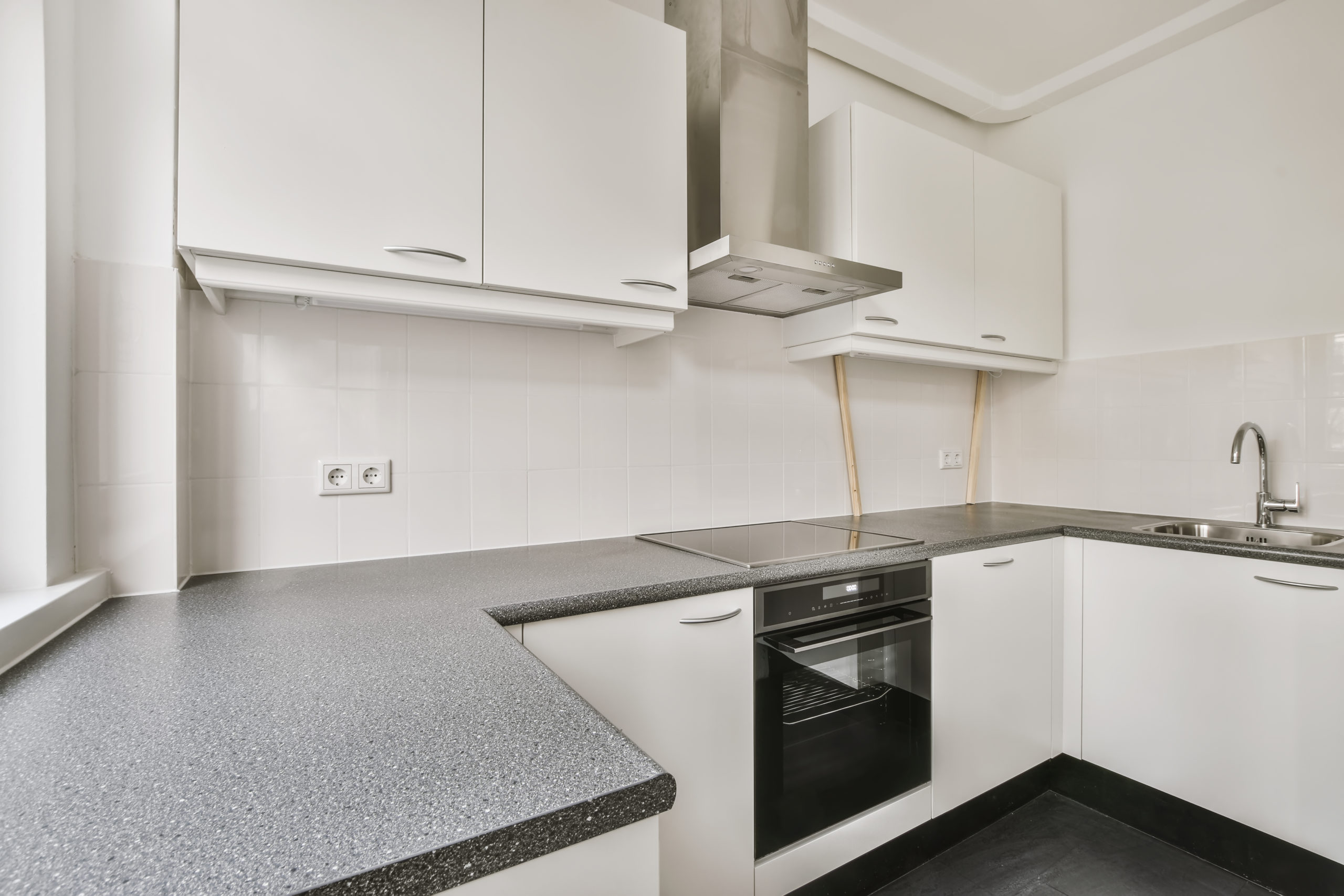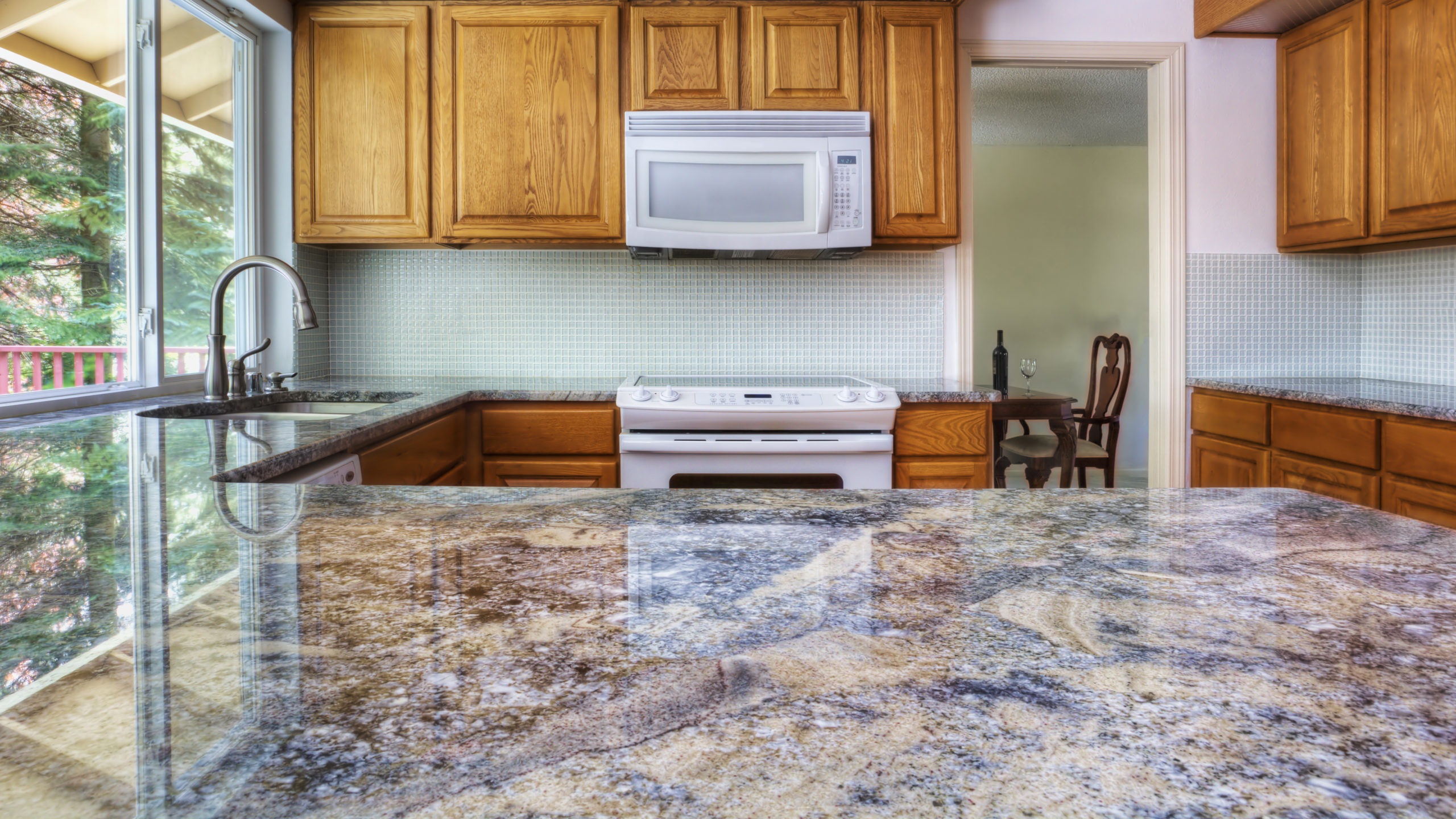Natural stone countertops have become a staple in modern kitchens due to their appealing aesthetics, exceptional stain resistance, and impressive durability. Among the different stone materials, granite has been a popular choice for over 100 years for those of us who are more well-heeled. While it is still considered a premium countertop material today, it has become more affordable in the last 50 years, allowing more people to have it in their homes. So before you decide to buy a new kitchen island or counters, here are some pros and cons of picking granite as your stone material.
Pro: It is Uniquely and Naturally Designed
Each granite tile has its own unique line, colour, and pattern, resulting in a truly distinctive countertop that is personalised to you. Granite is an igneous rock that is formed in the slow crystallisation of magma beneath the earth’s surface. It is made of quartz, feldspar, and mica, fused using heat and pressure to form a hard and durable slab of 100% natural stone. Its beautiful colours depend on its mineral and rock make-up. Unlike quartz countertops, which are customised to get their look, granite countertops get their look from nature. The only way to adjust the colour would be to paint over it, but that would take away its natural appeal.
Pro: It is Scratch-Resistant and Durable Because of its Hardness
On the Moh’s Hardness scale, where Diamond is the hardest with a rating of 10, granite is rated at a 7. It’s such a hard material that if you accidentally scratch your countertop with a kitchen knife, the knife is going to be the one that’s dulled. However, we do not recommend this, as it can damage the sealing and leave metal marks on the knife. We also would advise not to drop heavy cookware on it, as it can crack or damage the sealant. Granite is an excellent choice of countertop material because it is harder than marble and because with the proper care and annual maintenance, granite countertops are expected to last at least 30 years.
Pro: It is Heat-Resistant
Granite is made with the fire of a volcano, so it is extremely resistant to heat to temperatures of up to 250 Degrees Celsius. Keep in mind that granite expands slightly when heat is applied, so there should be enough space around your countertops to support this. Another thing to note is that while granite is heat-resistant, it is not resistant to extreme temperature change. For example, if there was a bucket of ice placed on one spot then you move the bucket and place a cast iron directly on the countertop without time for the granite to get to room temperature, the granite can potentially crack.
Con: There May Be Visible Seams
Earlier, we mentioned how no two granite slabs are alike. This means that unlike quartz countertops, which can be customised to be one large seamless countertop, granite slabs have to be connected using seams. While the appearance of seams may be a minor design flaw, the bigger disadvantage is that they are possible points of damage and weakness.
Con: The Sealant is Very Important
Although Granite itself is durable, scratch-proof, and heat-resistant, the sealant is not. You could cut up your food directly on a granite countertop (at the risk of damaging your knives), but it would scratch the sealant. You could place a hot pan on top of a granite countertop, but if you did that on one that’s sealed, then it may cause discolouration or even make the sealant wear off. You may be thinking, “So why do we need to seal our granite countertops?” It’s because granite is a porous material. If you spill something on then wipe it off, you only clean the surface. The rest of the spill will leak into the pores of the granite, and get stuck there. That is why it’s important to have your countertop sealed by a professional. A poorly sealed countertop is a breeding ground for bacteria.
Con: Considered High Maintenance
A common complaint is how much work it takes to own a granite countertop. Taking care of it consists of routine sealing on a yearly basis – or more often if you have a busy kitchen. There also has to be regular cleaning, harsh chemicals or anything acidic will ruin the sealant on your countertop surface, so we recommend using a damp cloth and mild soap. Then wipe with a dry cloth to prevent water stains.
Unlike quartz countertops, where you can use epoxy to fix a chip yourself, granite countertops require an expert for installation and repairs. The sealant is the most important part of a granite countertop, and no matter how much you clean, buff, or polish the damaged area, the only option would be to replace the finish entirely.

Weighing Your Options
Whether you are planning to replace your kitchen countertop or buy one for your new home, there is a wide range of stone types to choose from and they come in a variety of colours. Each stone type has pros and cons that you should look into before making a purchase. For granite countertops, the main question seems to be “Is it worth the maintenance?” If you think “yes,” check out DOMUS by Aurastone to see their collection of premium natural granite stones with unmatched beauty.




